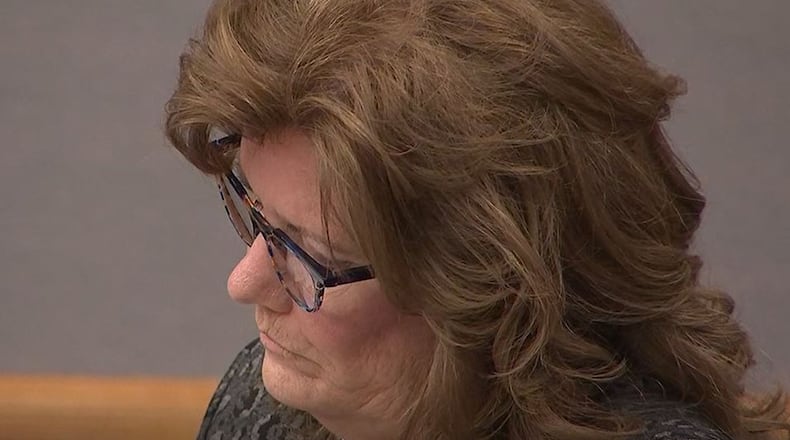The trial of Kathryn Schrader — Gwinnett County Superior Court judge turned hacking case defendant — got underway Tuesday. And her defense attorney charted a clear course.
B.J. Bernstein painted her client as a well-meaning woman, a public official who was genuinely spooked by the unusual things happening with her work computer. Schrader was irked that her concerns weren’t being taken seriously, Bernstein said, and grew increasingly wary that someone else in the courthouse was up to no good.
The judge hired a private investigator and gave his team — which she didn't initially realize included a registered sex offender — permission to track the activity on her computer, Bernstein admitted. But only in the hopes of getting to the bottom of things.
“She had grave and legitimate concerns that something was wrong,” Bernstein said in her opening statement.
Schrader was indicted late last year on three counts of felony computer trespass, accused of giving three men improper access to the Gwinnett County computer network. Those three men were also indicted.
Schrader, though, is the lone defendant this week. Private investigator T.J. Ward, employee Frank Karic and Ed Kramer — the DragonCon co-founder and sex offender who sometimes works as a computer forensic analyst — all have reached deals to avoid standing trial.
They’re expected to testify in the case against Schrader but weren’t among the witnesses called Tuesday.
Two representatives from Gwinnett County’s information technology department did take the stand, testifying to the events that set everything in motion.
Hayat Zamayar said that, early last year, Schrader reported several technology-related issues.
First, law enforcement information that she doesn’t have access to started appearing on the printer in her chambers. Then family photos on her computer appeared to have been accessed by other county employees. Then it appeared that a prosecutor had been given permission to access her terminal.
Zamayar said the repeated issues were concerning but also called them common errors, problems that often arise with things like network printers and shared drives. He said each of the issues was quickly rectified.
According to testimony, Schrader wasn’t satisfied.
GBI special agent Sara Lue interviewed the judge several times after authorities began investigating the situation last March. Lue testified Tuesday that Schrader said she hired a private investigator because she felt there may be some type of conspiracy against her within the courthouse.
The judge reportedly told Lue that she believed her office had been bugged and suggested that District Attorney Danny Porter could be involved.
Because of those suggestions, attorneys from the Prosecuting Attorneys’ Council of Georgia is handling Schrader’s trial instead of Porter’s office.
Porter was called as a witness Tuesday morning and asked if he had ordered anyone in his office to hack into Schrader’s computer.
“No,” he said.
About the Author
Keep Reading
The Latest
Featured



